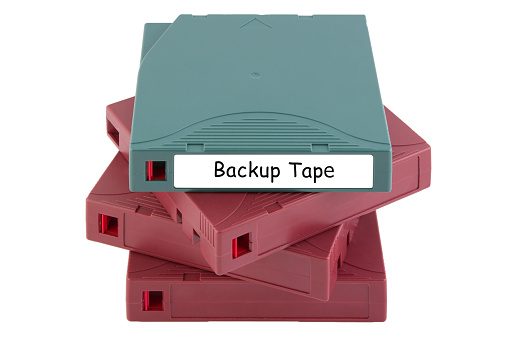Need Affordable & Reliable Information Systems Support in New Orleans?
Call Us: (504) 282-2236 When it comes to data backup, there is one thing that should never come into question: Should you? The answer is that yes, no matter what you do, by all means backup data. There are too many things that can happen to data that isn’t backed up, and there are too many horror stories about data that was lost into the ether forever because it wasn’t appropriately backed up.
When it comes to data backup, there is one thing that should never come into question: Should you? The answer is that yes, no matter what you do, by all means backup data. There are too many things that can happen to data that isn’t backed up, and there are too many horror stories about data that was lost into the ether forever because it wasn’t appropriately backed up.
So, what options for data storage are best? Surely the safest is the old standby, the tape backup? Not so fast.
Reasons tape backup probably is not the best option:
You can choose tape, CD’s, floppy disks, jump drives, the cloud. Which of those kinds of backup storage will be most likely to fail? If not number one, tape is at least tied with others for being the most likely to fail. Just imagine everything that can go wrong with tape:
It is almost easier to list the things that cannot go wrong with tape storage. Just consider one bad situation.
You have the previous five years of data stored on tape. In boxes that sit on the floor of the break room, or in the utility closet. This is the same utility closet that is home to the water shutoff valve. One weekend, there is a crack in the water pipe; pressure builds up close to the interior pipe source, which happens to be in the utility closet—where your box a tapes is. Monday morning, the crew comes in, realizes the floor is covered in water, and they walk into the utility closet and find that their data is wet. Maybe just the bottom layer of tapes in the box was ruined, or maybe all tapes were lost.
Now, in this one incident, let’s consider the case against tape. First, we have to take time to run the backup on the tape. This might be a once a year or once a month job, or somewhere in between. What kinds of jobs get forgotten? The ones we don’t do every day. Jobs like backing up data to tape.
Next, unless your business is the one in a million, you are space poor, but you need to find a place to store tapes. And a way to keep those tapes accessible just in case you actually need to lay your hands on some specific data. And, you need to put it somewhere that it won’t be in the way every time you search for copy paper or something.
Next consider the cost of using tape as your backup. A tape drive can cost from $250 to thousands of dollars. Because there are fewer people using this outdated technology, the price is going up, not down. And when a tape drive breaks, pitch it because it is hard to find someone who even knows how to fix a tape drive, and to find someone who wants to try is even more difficult. And if you need a part, you are probably out of luck.
Next, what about the cost of tapes? Tapes cost at least $25, and if you drop it, it might quit working. If you crack the case, it might quit working. If there is a power surge or a blackout, the tape can get sucked out of the tape and into the machine. In its day, tape was great. That day is gone.
What about security? When data is stored in the cloud, a hacker can get to it. That is possible. That hacker however is smart and skilled. If your data is stored on tape, the disgruntled employee who can’t make a pot of coffee can grab it as he walks out of the office. Anyone can steal a “thing” if they’re motivated, even people who don’t understand technology. The odds of someone targeting your data in the cloud and of that person being skilled enough to accomplish that goal are slim.
There are many ways to save data, but if you have been reluctant to leave your system of taping data files, now is a good time to consider making a switch. Too many things can go wrong, and eventually at least one of those things probably will.
Need The Absolute Best Information Systems Support In New Orleans?
Dial (504) 282-2236